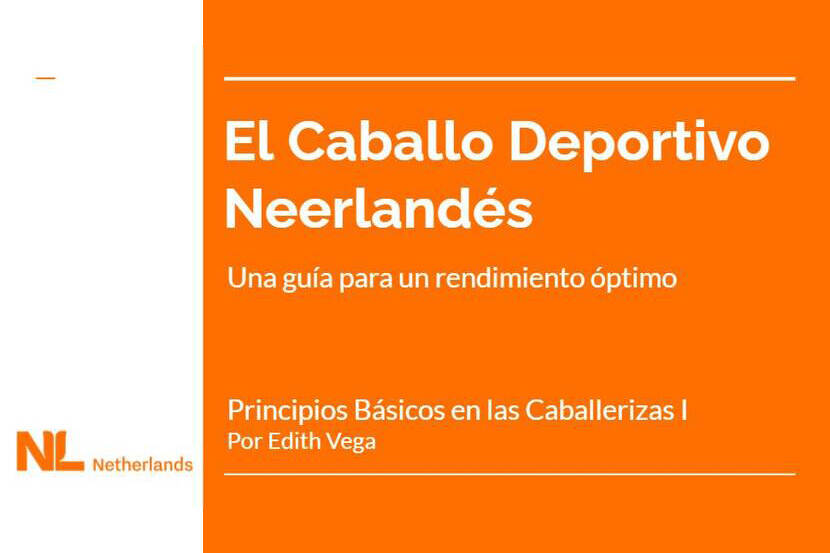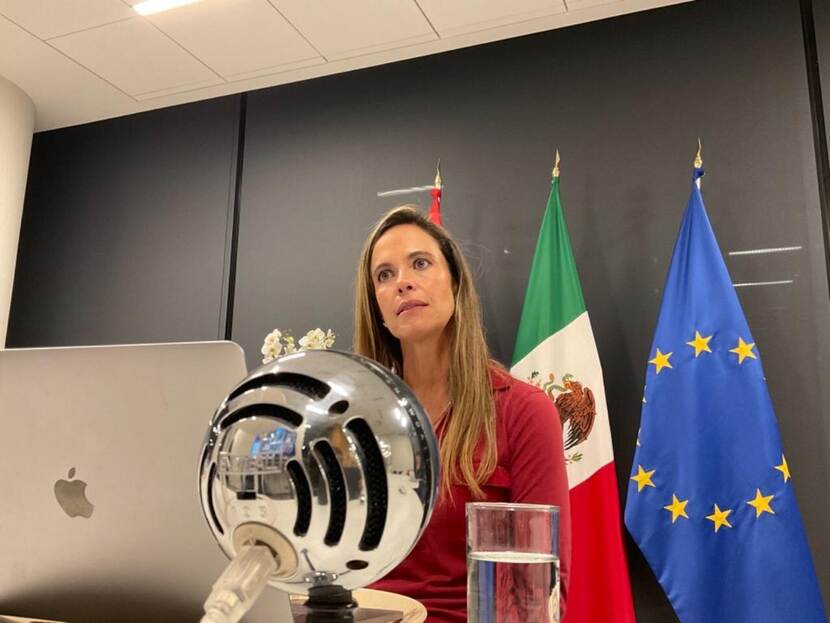Training series in the United Arab Emirates, Mexico & Saudi Arabia to promote Dutch know-how on Horse Welfare
Mexico and the Gulf Region are among the most important buyer of Dutch sport horses. Animal welfare standards in these countries are however not on par with Dutch standards, which affect the wellbeing and performance of these horses. A new training initiative by the Dutch Embassies in Mexico and Saudi Arabia aims to change this.

The Netherlands is the world’s third biggest exporter of sport horses and Dutch breeds are considered of very high quality. The Royal Dutch Sport Horse (KWPN) is the preferred and most popular breed for jumping and dressage sports, whereas the Frisian horse is considered one of the most sophisticated breeds that oft wins competitions. This makes horses from the Netherlands of great export quality and of popular demand.
Mexico and the United Arab Emirates are the seconds and third most important destinations of Dutch horses outside the European Union (after the US), representing almost 9 million euros in 2020. In these countries, horses are kept in warmer climates and often under other conditions than in The Netherlands. Also, animal welfare standards and knowledge are not the same as in the Netherlands, affecting not only the wellbeing, but also the performance of the animals.
In this context, the Embassies of The Netherlands in Mexico and Saudi Arabia and the Consulate General in Dubai in collaboration with Anne Loosveld Coaching and the local equestrian associations organized a series of webinars in November and December to train horse owners, riders, trainers, groomers and veterinarians and to put Dutch knowledge and experience on horse welfare available at their disposal.
The series consisted of four webinars in total, each one dedicated to a different topic of relevance for the participants such as horse wellbeing at the stables, horse nutrition, principles of training and horse health. Each webinar was given by either a local expert or by an international expert familiar with Dutch knowledge and experience on caring for Dutch sport horses.

In Mexico, local trainer Edith Vega explained common mistakes committed while horses are in the stables; how to detect and prevent stress; proper ways of using saddles; measurement of vital signs and health monitoring. In the United Arab Emirates local trainer Priscilla Robinson explained these topics.
Dutch lecturer and author Sandra van Iwaarden gave an insightful presentation on the aspects a trainer and a rider must learn to improve the performance of a sport horse; on the importance of warming-up and cooling-down before and after each training and how to avoid injuries while riding. The session led by renowned nutritionist Lizzie Drury focused on how to properly feed your horse to maximize its health and performance and how to prevent and reduce the risk of gastric ulcers & dehydration.
Overall, participants were very pleased with the contents of the training. According to many of them, this type of courses really matter as they see how horses are not taken care of adequately, usually due to the lack of know-how.
The Agricultural Teams in Mexico and the Gulf Region are looking forward to develop more events of this kind in 2022 to keep promoting animal welfare standards and Dutch know-how in this field.